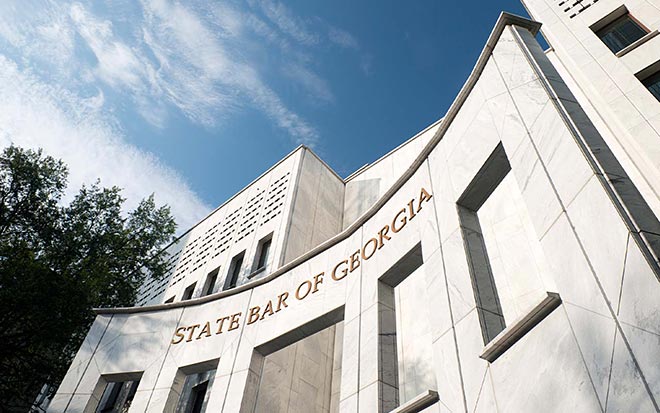May 24, 2019
Georgia Court of Appeals: Hourly Backhoe Operator is Not a “Key Employee” Under Georgia’s Restrictive Covenants Act
Georgia’s 2011 Restrictive Covenants Act (the “Act”)[1] substantively changed Georgia law governing the enforceability of restrictive covenants. Among other changes, the Act provides that non-competition agreements are enforceable only against employees who perform certain duties (including soliciting customers, making sales, or managing or directing operations and employees), or “[p]erform the duties of a key employee or of a professional.”[2]
Until recently, Georgia courts have offered employers and attorneys little practical guidance on the meaning of “key employee.”[3] But on March 5, 2019, in Blair v. Pantera Enterprises, Inc., 824 S.E. 2d 711 (2019)[4], the Georgia Court of Appeals provided long-awaited instruction on this issue. In Blair, the Court of Appeals determined that an hourly backhoe operator was not a “key employee,” and reversed the trial court’s grant of injunctive relief. Although Blair is physical precedent only (Judge Ken Hodges concurred, and Judge Elizabeth Gobeil concurred in judgment only), it is nevertheless instructive for practitioners drafting or litigating non-competition agreements under Georgia law.
Case Summary
From 2007 to April 2017, Pantera Enterprises, Inc. (“Pantera”) employed Stephen Blair as a backhoe operator, and assigned him to perform backhoe services for Norfolk Southern Railway Company (“Norfolk Southern”) in its Gordon Territory. Blair supervised a truck driver assigned to work with him, and was paid $13 per hour.
In 2012 (after passage of the Act), Pantera required Blair to sign a non-competition agreement to continue providing backhoe services to Norfolk Southern. In April 2017, after Pantera refused to increase his pay, Blair left Pantera and commenced employment for a different company. Because Norfolk Southern considered Blair a skilled, reliable, effective, and safe operator, it redirected its work in the Gordon Territory to Blair’s new employer. Pantera then sued Blair for breach of the non-competition agreement.
Because it was undisputed on appeal that Blair did not make sales, solicit customers, have authority to hire or fire, or direct the work of anyone besides his truck driver, the enforceability of the 2012 non-compete agreement turned upon whether he was a “key employee” for purposes of the Act.[5]
The Act defines “key employee” in two sentences, beginning:
“Key employee” means an employee who, by reason of the employer's investment of time, training, money, trust, exposure to the public, or exposure to customers, vendors, or other business relationships during the course of the employee's employment with the employer, has gained a high level of notoriety, fame, reputation, or public persona as the employer's representative or spokesperson or has gained a high level of influence or credibility with the employer's customers, vendors, or other business relationships or is intimately involved in the planning for or direction of the business of the employer or a defined unit of the business of the employer.
O.C.G.A. § 13-8-51(8). This Section continues:
Such term also means an employee in possession of selective or specialized skills, learning, or abilities or customer contacts or customer information who has obtained such skills, learning, abilities, contacts, or information by reason of having worked for the employer.
O.C.G.A. § 13-8-51(8).
In granting injunctive relief, the trial court determined that Blair satisfied this definition “by virtue of his reputation and the period of time within which he obtained his training and skill.” But the Court of Appeals held that this was not enough, observing that when both sentences of O.C.G.A. § 13-8-51(8) were read together, a “high level of notoriety, fame, reputation, or public persona as an employer’s representative” must have been obtained “by reason of the employer’s investment” in the employee. (Emphasis in original.) The Court of Appeals reasoned that Pantera did not satisfy that condition because Norfolk Southern preferred Blair on account of “his work ethic and personal attributes,” rather than Pantera’s investment in him.
The Court of Appeals concluded that, “to be a key employee for purposes of the Act, an employee must meet the requirements of both sentences of O.C.G.A. § 13-8-51(8).”
Lessons for Employers and Attorneys
- “Selective or Specialized Skill” May Include Operating a Backhoe: Although the Court of Appeals expressed skepticism, it did not reverse the lower court’s finding that Blair possessed “skill” sufficient to support a finding that he was a “key employee.”[6] Thus, employers should not interpret Blair as prohibiting non-competition clauses for every laborer or equipment operator.
- One Size Does Not Fit All: Scrutinize employees’ specific job duties before asking them to sign a non-competition agreement, and tailor the non-competition agreement to emphasize the employer’s investment of time, training, and money.
- Consider Alternative Covenants: Because the “key employee” provision does not apply to non-solicitation or non-disclosure agreements (O.C.G.A. § 13-8-53(a)), employers may protect their interests with alternative covenants and restrain potential anti-competitive activities of an employee who is arguably not a “key employee.”
- Narrow Tailoring is Insufficient: Even narrow non-competition agreements are unenforceable if an employee does not satisfy the requirements of O.C.G.A. § 13-8-53(a). The non-competition agreement in Blair, for example, was found unenforceable even though it was narrowly drafted—merely prohibiting Blair from operating a backhoe for Norfolk Southern in its Georgia Operating Division for any entity besides Pantera for two years.
- “Blue-Penciling” Will Not Save Your Agreement: One of the Act’s most talked-about features is the express authorization that courts may modify, or “blue-pencil” otherwise unenforceable covenants.[7] Of course, a court cannot “modify” the facts surrounding an employee’s role and duties, which is the core analysis in determining whether a worker is a “key employee.”
For questions on this topic, please contact Michelle Johnson at michelle.johnson@nelsonmullins.com or Peter Munk at peter.munk@nelsonmullins.com.
[1] O.C.G.A. § 13-8-50, et seq.
[2] See O.C.G.A. § 13-8-53(a) for a full list of duties that make an employee eligible to sign an enforceable non-competition agreement.
[3] But see CSM Bakery Sols., LLC v. Debus, No. 1:16-CV-03732-TCB, 2017 WL 2903354, at *6 (N.D. Ga. Jan. 25, 2017) (refusing to define “key employee” so broadly that “virtually any employee with customer interaction” could satisfy that definition).
[4] Reconsideration denied Mar. 28, 2019.
[5] See O.C.G.A. § 13-8-53(a).
[6] Blair, 824 S.E.2d at 715 (“Even if the trial court was correct that Blair was in possession of selective or specialized skills that he obtained by reason of having worked for the Pantera . . . .”)
[7] See O.C.G.A. §§ 13-8-53(d), 13-8-54; see also LifeBrite Laboratories, LLC v. Cooksey, No. , 2016, WL 7840217, at *6 (N.D. Ga. Dec. 9, 2016) (addressing modification under the Act).








